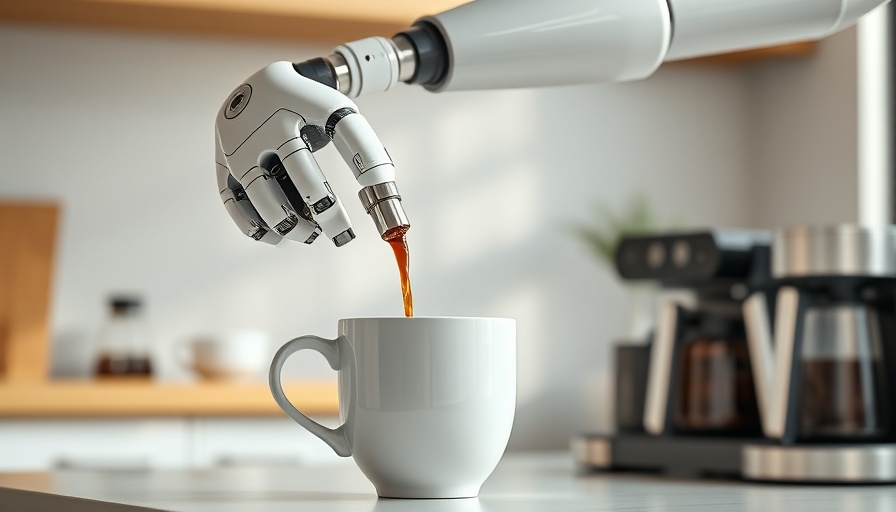
The Dawn of Intelligent Coffee-Making Robots
In a busy kitchen where precision and speed are essential for a smooth operation, a remarkable breakthrough has emerged: an AI-powered coffee-making robot. Developed by a dedicated research team at the University of Edinburgh, this new device represents not just a leap in robotics, but a significant evolution in the capabilities of artificial intelligence.
A New Era for Robotics and AI
This innovative machine utilizes advanced artificial intelligence and fine-tuned motor skills, allowing it to interact more naturally within its environment. Where traditional robots have mostly functioned effectively in controlled settings like factories, this coffee robot adapts to the dynamic and unpredictable environment of a kitchen, an achievement that could redefine the landscape of kitchen automation.
Understanding the Technology Behind the Machine
The design includes a robotic arm with seven joints, which provides a remarkable range of movement and flexibility. The process starts with the robot interpreting verbal commands, analyzing the kitchen's layout, and navigating its surroundings to locate a mug. This functionality marks a significant innovation compared to previous robots, which struggled to operate with any level of adaptability.
The machine combines machine learning algorithms with various sensors that allow it to respond to real-time changes, such as a person unexpectedly moving a mug. This capability exemplifies a major advancement toward mimicking human-like interaction within technical contexts.
Applications and Implications for the Food Service Industry
Beyond merely rethinking coffee preparation, the implications of deploying such AI-driven robotics in kitchens can lead to increased efficiency. Busy cafes and restaurants could benefit tremendously from reduced prep times and a more consistent quality of beverages, allowing staff to focus on customer service and more complex tasks.
The Future of AI in Daily Life
The research indicates that we are on the brink of a future where robots with advanced intelligence may become a common sight in various settings. Ruaridh Mon-Williams, a leading researcher, notes that the merging of reasoning and sensory-directed movement seen in this robot marks an integration of disciplines that could lead to widespread societal changes.
As the coffee-making robot illustrates, advancements in robotics and AI not only foster innovation in the service industry but also prompt necessary discussions regarding the ethical implications of deploying such technology in daily life.
Takeaway: Embracing Automation in Our Lives
The introduction of AI in our kitchens signals a broader acceptance of automation in everyday tasks, enhancing our quality of life. As technology continues to evolve, so should our understanding of its implications on work, efficiency, and human interaction with machines.
Stay ahead of the technology curve and explore how these advancements could change industries, from food service to manufacturing, and offer new ideas on what it means to integrate artificial intelligence into our daily lives.
 Add Row
Add Row  Add
Add 




Write A Comment